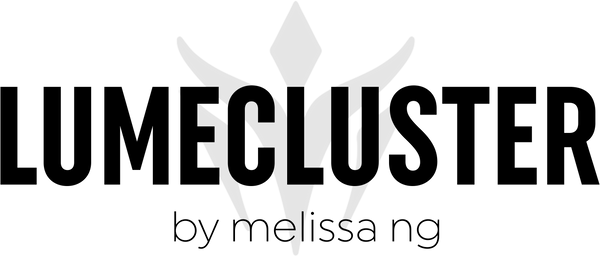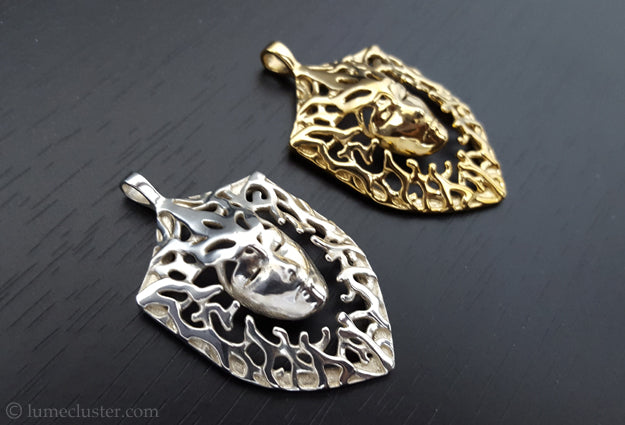
Slumps. Getting stuck in a rut. Hitting a wall. We've all experienced them.
Whatever you call it, at some point you've probably wondered, "Is this the best I can do? Where do I go from here? Will I ever be good enough?"
Oftentimes, our reflex is to keep looking outward for inspiration. While I'm all for expanding your idea and visual library, constantly looking for inspiration may run the risk of becoming too heavily influenced by other people's ideas or result in feeling horribly inadequate in comparison to others.
Having confidence in the quality of your own work is built on the inside, not on the outside. This may come off as a "duh" statement, but bear with me. This has been a very hard lesson for me to learn, especially this year.
“Solitude is a catalyst for innovation.” ― Mahatma Gandhi
I've spent so much of my life constantly seeking outside approval, people pleasing, and conforming to other people's interests and ideas in order to avoid feeling like an outcast. While doing so brought some comfort, it came at the cost of not having my own voice, not trusting my own skills, and not feeling like I had control of my identity.
For years, my confidence was dependent on external approval and other people's opinions, which meant I crumbled the moment I stopped receiving it. So, 2015 was my year I was determined to change that.
But to do this, I realized I needed solitude, which I often forgot to give myself. One way I liked to remind myself was to reread portions of Susan Cain's TED speech, The Power of Introverts:
"...solitude is a crucial ingredient often to creativity...Now, of course, this does not mean that we should all stop collaborating...but it does mean that solitude matters and that for some people it is the air that they breathe...And in fact, we have known for centuries about the transcendent power of solitude. It's only recently that we've strangely begun to forget it. If you look at most of the world's major religions, you will find seekers -- Moses, Jesus, Buddha, Muhammad -- seekers who are going off by themselves alone to the wilderness, where they then have profound epiphanies and revelations that they then bring back to the rest of the community. So, no wilderness, no revelations.
This is no surprise, though, if you look at the insights of contemporary psychology. It turns out that we can't even be in a group of people without instinctively mirroring, mimicking their opinions."


My second way was to create a pendant and bracelet that helped quickly remind me to reclaim my solitude and to pause, breathe, and think in those moments when my thoughts became panicked, frustrated or stressed. The Solitude & Innovation pendant and cuff are available in the Lumecluster shop.


As someone who frequently gets lost in negative thought, creating this helped anchor me back into reality. And seeing how 2015 is coming to a close, I figured it was a good idea to spend some time in solitude and look back at some of my most notable experiences this year, the key takeaways, and how you might be able to apply the lessons from my experiences and mistakes for a better 2016.
1.) How you label yourself is how you limit yourself
"I'm not the type of person to do X. I'm just not smart enough to do Y. I'm not wired to do Z. It doesn't come naturally to me." We are all guilty of this.
Usually we express these kinds of self-limiting insecurities when we're faced with something unexpectedly difficult. My guess is that it may often stem from past negative experience or stories. For me, I had a negative experience with writing.
For years, I'd say stuff like, "Writing has always been difficult for me" or "Writing just doesn't come as easily to me like it does for other people" or "I've just never been good at writing."
So, when I was faced with writing the Lumecluster Dreamer Creed (and each blog post), I was overwhelmed with anxiety. Every step of the way, I kept telling myself how much I sucked at writing and how impossibly stupid I was for trying to write at all.
It wasn't until a friend asked me to tell him what exactly it was that bothered me so much about writing. The truth is I used to be terrified of writing (and speaking) ever since my first grade teacher assumed I didn't know English just because I was quiet (despite being born a native New Yorker). She often yelled at me in front of my classmates, which of course led to a lot of teasing.
In retrospect, my habit of putting down my own writing was a sad sort of defense to protect myself from feeling hurt again. But in truth, it made the act of writing even more stressful. In short, my ability to write was paralyzed by the pain of my past.
But once I was able to identify the basis of my fear and set it aside, I was able to start moving forward without let it control me.
What you can do:
- The next time you're faced with a difficult task, pay attention to how you describe yourself. If you start saying phrases like, "I'm just not the type" or "It doesn't come naturally," stop and ask yourself what's the real reason behind them? Is it because of a bad experience? Is it because you don't like practicing it or that you actually don't enjoy it? How you talk about yourself has a lot of influence over how you (don't) grow and can make or break your confidence and your ability to climb to new heights.
- Once you identify your fear or anxiety (and be honest with yourself), set it aside and reframe your thoughts. Tell yourself that this is simply another skill that will take time to learn and can be improved with practice. Sure, it won't be amazing the first time through, but it's possible for you to get better if you are willing to put the work into it.
2.) Develop style/focus by diversifying your projects and explorations
This is especially important if you have some decent skill in something but haven't quite figured out how to expand with it yet.
As I've mentioned before, I experimented with many mediums over the years before I decided to stick with 3D printing intricate Dreamer Masks, jewelry and other designs in 2014.
Although I saw a lot of potential in 3D printing and became pretty happy with my style, I was worried that I'd be missing out on other cool projects if I stuck with making intricate designs.
Then in November 2014, I was asked to design masks for a JiHAE music video starring The Walking Dead actor, Norman Reedus. While it was a very interesting and challenging project, they needed masks that were extremely different from my usual style. Even so, I had always wondered whether or not I'd like to make creepier masks and this was the perfect reason to find out.
The project finally wrapped up and launched in May 2015, which was exciting and a relief. It was exciting because I got to make creepy looking masks and picked up a lot of new skills in a very short period of time. It was a relief because I realized I didn't really like making creepy masks.
What worried me most was how the project didn't at all match Lumecluster's message and style. It occurred to me that if someone looked at these music video masks, they'd never think, "Hey, Lumecluster did that." I also started getting tons of requests from people who wanted masks of their own face or celebrity faces... No, thank you.
After realizing I didn't want to have a repeat of this kind of project, it was easier for me to decide what projects to create, accept, and turn down. The best part was that it freed up a lot of mental space, energy, time, and renewed my joy for creating Dreamer Masks.
What you can do:
- Experiment/explore something different from what you typically make. Whether you're just starting out or pretty developed, it's still useful to carve out a little time to do this at least once a week.
- Maybe it's trying a different medium or playing with a different style. Reading and researching literature in fields completely different than your own also open new ways of thinking.
- Pay attention to what piques your interest and what bores you. Dig deeper into anything that could be connected to what excites you and put whatever doesn't hold your interest on the back burner. Trial and error is your best friend in finding clarity and discovering new paths.
3.) Learn daunting new skills by breaking them down into friendly bite-sized tasks
Ever see something awesome and think, "Holy crap, I want to learn how to do that" only to realize you have no idea where to start?
Well, a lot of people stop there and never go beyond simply wishing. My belief is that this usually happens because they approach learning a new skill as either an enormous undertaking they must perfect in the very first attempt or they've decided it "doesn't come naturally" (please refer to #1).
I confess I wasted a lot of time complaining how hard it would be to create beautifully spray painted metallic finishes on my plain white plastic masks. Deep down, I didn't like that I was a beginner again and I was afraid I'd end up spending time (and money) learning something that I may end up not liking (please refer to #2).
A few months went by and my interest still didn't wane and I decided it was time to take action. So, I started by looking up people I could possibly learn from--prop makers. I searched online and found out there were a lot of prop makers who sold e-books covering the basics, advanced skills, and intermediate skills.
After reviewing the e-book, I didn't immediately go buy tons of materials or try to figure out how to paint a complicated metallic finish I couldn't handle yet. Instead, I simply bought a vapor mask and one spray paint can and played around with it to start getting comfortable.
My next task was to learn how to sand and smooth out my mask surfaces. Luckily, my sister is a toy designer and had a lot of experience sanding her figures, so she was able to quickly point me in the right direction.
After several weeks of pacing myself and taking baby step after baby step, I finally worked up the courage and confidence to finally spray one of my masks.
What you can do:
- Learning as a beginner is exciting. The only people who feel upset with starting something new for the first time are the ones who want fantastic results without putting in the hard work (and there are lots of these folks). But being a beginner is exciting because you are enhancing and diversifying your arsenal of skills that will set you apart from the many who only do the bare minimum.
- You don't have to learn everything there is to learn in your very first attempt. It's unreasonable and will only put unnecessary stress on yourself. Anyway, making mistakes is what makes us more knowledgeable and skillful at maneuvering problems and complications down the road. Someone who expects only perfection can never handle the pressure of the unexpected.
- Start with the basics. What's ONE step you can take to start right now? Can you take an online/offline course somewhere? Is there a book on it? Do you know someone who has the skills? Are there any Youtube tutorials available? Can you ask someone to suggest some resources to start with?
- Most things are also a simple Google search away nowadays. Remember, start with getting comfortable with the very basics and don't worry about creating a masterful final product yet. Once you're comfortable with the very first baby step, then move onto the next little task.
4.) You won't know what you're capable of until you try
I've lost count of how many times I've said, "I wish I had done..." or "maybe I'll finally get to it next year" or "next year I'll be ready" every time another year came to a close. I don't want to hear myself saying that again or regret all the lost time I can't get back. Do you?
But this year was different. I had the opportunity to collaborate with two of my favorite people that I deeply admire and respect.
One of those projects was with entrepreneur / speaker / and author Jonathan Fields of the Good Life Project, where I designed a custom Dreamer Mask: Revolutionary and custom made 400 flexible "Make Give Love" cuff bracelets for his beautiful conference.
The other project was with actress / entrepreneur / producer / NYT bestseller Felicia Day. The Dreamer Regalia armor dress is in the final stages and will be launched in January 2016. This was probably one of the most challenging projects I've done so far and learned so much from.
When people heard about these awesome projects, the first question they always asked was, "Who connected you to them? How did they find out about you?" And the truth is I reached out to them and proposed the projects myself.
Please keep in mind that I didn't simply email and say "HEY, you wanna do something together? Because it'll be awesome" or write a ridiculously long and unclear essay about "me, me, me, and why you should help me, me, me." That's annoying and inconsiderate of the time they probably don't have to spend on someone they know absolutely nothing about and have no reason to trust. So, please don't jump straight into emailing everyone you wish you could work with.
The reality is that I had already been a fan of their work for years, spent months honing my skills, understood their interests and values, brainstormed ideas that matched our missions, and spent weeks figuring out a way to reach out to them respectfully and concisely. The last thing I wanted to do was make them feel like I was wasting their time.
But let's be honest. No matter how big or small the brand or figure, no one should ever feel entitled to someone else's time. After all, building any relationship first comes from developing credibility and trust.
The point is, several months ago, I never thought I'd get to work with Jonathan or Felicia because I thought I'd be better off reaching out to them in maybe another year or two....or three or four. I even thought, "Hey, maybe they'll notice me in the future when I'm better" (ugh, just no).
But then I wondered, "Wait...why don't I reach out now?" After all, I had the skills. The worst thing that could happen is that I don't get a response, right? So, why not take the chance? And I'm glad (and still shocked) I did.
What you can do:
- Ask yourself, "Why not now?" The next time you hear yourself making an excuse to do something next year or to put off for later, ask yourself, "Why not now?" Are you feeling insecure about publishing an art piece or launching a new project because you think it's not good enough? Or is it really because you're afraid someone will criticize it?
- If your answer isn't honestly because of a complete lack in skill (please refer to #3) or if it turns out that you don't truly have an interest in it after all, then you don't have much of an excuse not to try.
- Be willing to put in the work. After all, dreams don't come true unless you're willing to work for it while knowing that there is always a possibility of rejection or failure. Success only comes to those who don't give up trying again and again.
Ready for 2016?
I know the Lumecluster you see right now isn't like the Lumecluster that was launched in 2012. If you're no longer interested in what Lumecluster has become, I welcome you to unsubscribe. No hard feelings :)
With that aside, I'd like to share again the importance of always carving out time for solitude.Take little moments away from the constant hustle and bustle of everyday life and give yourself that moment of quiet to encounter new revelations and innovations so that you can take a breath and find new ways to grow.
After all, having a little alone time to collect ourselves is probably just what we all need after the holidays...
Wishing you an amazing new year!
<3 Melissa
P.S. The Dreamer Regalia armor dress is coming in January 2016. Stay tuned!

